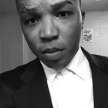What I've learned 5 years after High School Graduation
(What they don't teach you)
Before I get into this, I want to put this in your head. Your only job is to make sure you're thinking about this throughout this article. Have it playing like a broken record in the back of your mind. Ready? Good.
Your Three Most Important Investments:
A.) Knowledge
B.) Health
C.) Wealth
When we were growing up, my brother, sister, and I had the privilege of experiencing life on both sides of the tracks. We lived in a nice two-story house, in a good neighborhood, and went to good schools. We also worked most summers and weekends with our family business cleaning houses and buildings. We never had to know the meaning of working a standard "Nine-to-Five" because my mother, being a businesswoman, knew how to value her work and also spot which deals in which the time traded would never equate to the money earned. Most houses we cleaned took up to 4 hours total and we'd walk away, finished for the day with at least $100-$200 in our pockets. Most business offices we cleaned required the same amount of time but had a substantially larger payout. Occasionally, during the summer months, we'd procure that one contract that might take a few days to fill but would have the largest payout at that time (we kept those to a minimum because my mom knew that time was more valuable than money). The business was a good lucrative business and had established a good name in our community. But, the work was brutal.
My mom and dad started the business in 1996 with just $20 and a hard-learned degree from the University of Hard-Knocks. As she told me, it was my dad's idea since cleaning and construction were the two things he knew how to do best. They started with just $20 and bought cardstock, handwriting business cards to pass around the neighborhood, and bought basic cleaning supplies. They secured different houses in neighborhoods as well as contracts with local churches, construction sites, business offices, and schools. With each time they cleaned, they learned more and more about how to make cleaning easy and how to improve the quality of their work. The business grew and continued to grow until 2005 when the University of Hard-Knocks would re-enroll my mom in another academic year. My dad passed away from stage 4 brain cancer known as glioblastoma leaving my mom with 3 kids and a business with 30+ employees. Then came the real estate market crash in '07-'08 which would significantly decrease the number of contracts and payouts the business would receive for the rest of its run up into 2017 when two of her kids had moved out of the house and the work of raising children had been completed. Multiple financial stressors would present themselves over the years that would leave her sitting at the dinner table throughout the night figuring out the best way to cut the checks to pay the bills, taxes, credit cards, etc. Then, she would go to work the next day, come home and cook and spend some time with us, and go to sleep for a few hours before waking up to spend more time at the table... Until 2011, when she became debt-free.
In 2013 and 2014, my mom made it a point to take us (my brother, sister, and I) to see how she manages money. She prefaced it by taking us to see different neighborhoods while teaching us the importance of why it's important to learn how to manage money (Note: I said "manage" not "make"). We sat in the car gawking at big houses that passed in front of us until we entered in the smaller neighborhoods and ghettos, where we frowned and turned from the windows. I remember looking into the rear-view mirror and seeing her smile at us, knowing that she got the point across. Then, we'd stop at three places: the bank, her financial advisor's office, and the tax office. She would make sure that we were sitting at the table during each meeting and actively engaging. She would tell the banker to tell us about different types of loans, savings/investing accounts, and how to use a credit card. She would tell her financial advisor to teach us the benefits of investing wisely in different stocks with a brokerage. She would have us sit in the office while she'd hash out her annual taxes (although, I don't recall her explaining the tax breaks she received). And guess what. After all this, I still left the house in 2015 and made huge financial mistakes... Five years later, I'm learning how to invest in myself for the long term.
Most people complain that schools don't teach you what I like to call "the easy stuff." They don't teach you how to save, write checks, pay taxes, etc. They're right, schools don't. But, I would argue, that most of this information is outdated anyway. Sure, you need to know how to pay taxes. But if you know how to put a rock in a corner and leave it there, you know how to save. The paper money system is fading out as most transactions are now online. As a new, independent person, you need to know how to invest. Remember those three points? Good.
I find it interesting that schools borderline refuse to teach their students how to invest and what to invest in. In fact, they only drill in one point in investing: knowledge (albeit, they don't do it right. Most people learn how to go to college to get in debt and spend decades trying to pay it off no matter what degree). In fact, let's do a test just to prove my point.
- How many "high-value" books (books that contain information which you can use to improve your current situation in the "fill-in-the-blank" field) have you read of your own free will since finishing high school?
- How much time do you spend watching movies, tv, youtube, etc. in comparison to reading and/or growing your depth of knowledge?
It's just two questions but if you answer either of these incorrectly, you're failing yourself. And it's not entirely your fault. Schools spend so much time cramming textbooks and theories into our head in an effort to churn out more students with high GPA which get accepted to other schools. But, oftentimes what happens is that, instead of increasing our curiosity regarding different concepts, they're plugging our willingness to learn more by making it seem uninteresting and undesirable. Think about it. You spent the entirety of high school studying textbooks and diagrams to get into college to study more textbooks and diagrams. Then, you get your first job and realize none of it means anything. The first 18- 40 years of your life were simply checks in boxes if you weren't taught to use them correctly. On top of that, you don't have any life skills. You don't know how to manage money. It's a foreign concept. All you know is that if you keep working hard and doing well, you'll get that promotion. If you keep saving, you'll have a nest egg. So, you work for that two weeks off each year; for that 20-45 year pension (which isn't guaranteed); for that security, hoping that you keep that job at that company for as long as you can. But because you don't have a depth of knowledge in how to invest in yourself, when the University of Hard Knocks forcibly enrolls you into its program, you won't have an idea on how to learn the curriculum and adapt to the changes it presents. Invest in knowledge on how to manage your money.
Your biggest asset is yourself. No matter what circumstance you are in, the one thing that you have from birth to the grave is your self. With your two hands and two feet, you will always have a way to make your life pan out the way you want it to if you set yourself to that goal. Don't squander it. I can keep this part short and sweet because it hits everyone like a ton of bricks for their new year's resolutions: Invest in your health. Workout. Eat the things that positively impact your body and mind. What purpose is it to have the things you work hard for if you can't use them? Learn about how to manage your diet and exercise routine. I learned the importance of this at a young age. My dad and grandmother both got sick around the same time in 2004-2005. They were both hospitalized for the rest of their lives. It's no new fact that cancers, strokes, and other ailments have been linked to a person's diet and exercise. Invest in your health and knowledge of how to lead a healthy lifestyle.
For most people, their biggest liability is their wealth. What do I mean? Because of their ignorance and their inability to manage money, they allow their money, their wealth, to manage them. They accrue debt. They live in fear of diminished savings accounts and don't spend a dime. They don't know how to accrue proper wealth in gaining, developing, and maintaining real assets. Thus, their wealth takes a toll on their mental, emotional, and physical health. They work themselves into the grave trying to stay above and tread water rather than investing in a boat. The work takes time away from investing in knowledge because they spend their time and effort working and not developing new ideas and feeding curiosity. They spend 20-45 years working towards a pension, praying they don't get fired or that their company doesn't tank, hoping for the next pay increase because they don't invest properly in their wealth and their ability to make more money with less effort. Thus, they get in debt. They see the doctors more because they don't have time to maintain a healthy lifestyle. They find themselves emotionally running from an early grave because they spent their time banking on their formal education and not enough time investing in their financial education. Invest in your wealth.
Easier said than done, right? Next question is how to do this. How do we get from point A, acquiring knowledge, to point B, using that knowledge to provide substantial results? How do we even start with point A? If you're asking yourself this question, you've already started. You've already started this path by becoming curious and that's the only thing you need. Becoming curious is the same thing as realizing your tank is almost on "E." You need to refuel. You need to more. I've come to realize that the wealthy remain wealthy because they are always curious and they always feed their curiosity. They're always willing to learn.
We'll explore more about how to start becoming financially literate in the next few weeks. I hope this helps and stay tuned for more!
About the Creator
David McKelly
I'm a passionate writer and health/life enthusiast. I love exploring the questions that life presents and pursuing those rare moments. Poetry is how I cope with pain, stress, and trauma. God gave me this gift. I'm trying to understand why.







Comments
There are no comments for this story
Be the first to respond and start the conversation.